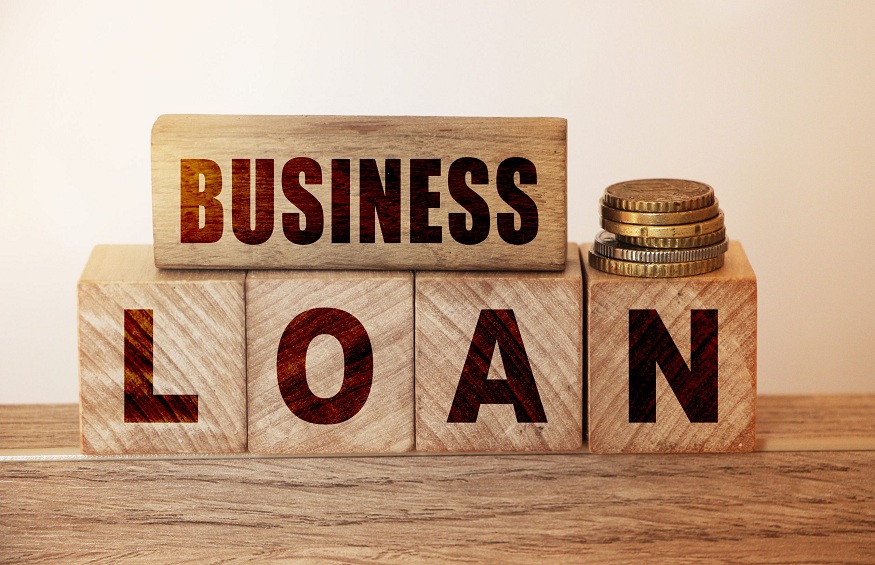Are you a business owner looking to expand or start a new venture? Commercial loans can provide the funding necessary to take your company to the next level. However, understanding the ins and outs of commercial lending can be overwhelming.
In this article, we will break down everything you need to know about business commercial loans – from types of loans available, eligibility requirements, and tips for successful loan applications. So before you sign on the dotted line, read on to gain some valuable insights into commercial lending!
Introduction
Commercial business loans can be a great way to finance the growth of your business. However, they can also be a source of financial stress if not managed properly. Here are a few things you should know about commercial business loans before you apply:
The interest rate on commercial business loans is usually higher than the interest rate on personal loans or credit cards. This is because businesses are considered to be a higher risk than individuals when it comes to lending.
Commercial business loans are typically repaid over a longer period of time than personal loans or credit cards, which means that the total amount of interest you will pay will be higher.
You will likely need to provide collateral when you apply for a commercial business loan. Collateral is an asset that can be used to secure the loan in case you default on the payments. Common types of collateral include real estate, equipment, or inventory.
The terms of commercial business loans can vary depending on the lender and the type of loan you apply for. Make sure you understand all of the terms and conditions before you sign any paperwork.
Defaulting on a commercial business loan can have serious consequences for your company, including damage to your credit score and seizure of your assets by the lender. If you are having trouble making payments, reach out to your lender immediately to discuss your options.
You may be able to qualify for a tax deduction on the interest you pay on your commercial business loan. Be sure to research this option and consult with an accountant before taking out a loan.
By understanding these key points about commercial business loans, you can make a more informed decision when it comes to financing your company’s growth. Good luck!
What is a Business Commercial Loan?
A business commercial loan is a loan that is given to a business in order to help finance the company’s operations. The loan can be used for a variety of purposes, including working capital, equipment purchases, and real estate acquisitions. Commercial business loans are typically given by banks and other financial institutions, and they usually have terms that are more favourable than those of personal loans.
Types of Commercial Business Loans
There are many different types of commercial business loans available to business owners. The most common type of loan is a term loan, which can be used for a variety of purposes, such as working capital, equipment financing, or real estate purchases. Term loans typically have fixed interest rates and repayment terms of one to five years.
Another common type of commercial business loan is a line of credit, which can provide you with flexibility and access to funds when you need them. Lines of credit typically have variable interest rates and allow you to borrow up to a certain amount, which is determined by your creditworthiness. Repayment terms are usually revolving, meaning you can make payments and then borrow again up to your credit limit.
Other types of commercial business loans include SBA-backed loans, equipment loans, real estate loans, and invoicing factoring. Each type of loan has its own eligibility requirements and terms that should be reviewed carefully before applying.
Pros and Cons of Applying for a Commercial Loan
There are a few key things to keep in mind when considering if a business commercial loan is right for your business. First, it’s important to understand how the different types of loans available offer different possibilities.
For example, SBA 504 loans are best for businesses looking to finance major fixed assets, like real estate or equipment. On the other hand, business lines of credit provide more flexibility since you can draw on the funds as needed and only pay interest on the amount borrowed.
It’s also crucial to consider the terms of the loan, including repayment schedule, interest rate, and fees. You’ll want to find a loan that fits both your short- and long-term needs and won’t put undue strain on your cash flow.
Of course, every loan comes with risks and potential drawbacks. Before taking out a commercial business loan, be sure to weigh the pros and cons carefully to determine if it’s the right move for your company.
Qualifications for a Commercial Business Loan
In order to qualify for a commercial business loan, you will need to have a good credit score and a strong business plan. You will also need to provide collateral, such as property or equipment, in order to secure the loan. The loan amount that you are eligible for will depend on the value of your collateral and your ability to repay the loan.
Application Process
The application process for a business commercial loan can vary depending on the lender, but there are some common steps that you can expect. The first step is to submit an application, which will include information such as your business financials, collateral, and credit history.
Once your application is received, the lender will review it and determine if you are eligible for a loan. If you are approved, the next step is to negotiate terms and conditions of the loan, including interest rate and repayment schedule. Once the terms are agreed upon, you will sign the loan agreement and begin making payments.
Requirements and Documentation Needed
In order to apply for a commercial business loan, you will need to have the following documentation and information ready:
- Your personal credit score and history
- A detailed business plan
- Financial statements for your business
- Collateral
- Tax returns
The loan application will ask for detailed information about your business, including information about your revenue, expenses, and projected growth. Be sure to answer all questions truthfully and accurately.
Be sure to read your loan agreement documents carefully before signing, and always run them through your financial advisor before proceeding.
Alternatives to Commercial Business Loans
If you’re a business owner, you’ve probably considered taking out a loan at some point to help grow your company. But commercial business loans can be difficult to qualify for, and they often come with high interest rates. If you’re not able to get a traditional loan, there are still a few alternatives that can help you get the funding you need.
One option is to use a personal loan. You can usually get lower interest rates on personal loans than on commercial business loans, and they can be easier to qualify for. However, you’ll likely need to put up collateral (such as your home or another asset) to secure the loan, and the payments will be based on your personal credit score rather than the business’s credit score.
Another alternative is crowdfunding. This involves raising money from a group of people, typically through an online platform. It can be a good option if you have a solid plan for how you’ll use the funds and you’re able to market your campaign effectively. However, it can be difficult to reach your fundraising goal, and there’s no guarantee that people will donate money to your cause.
You could consider using a line of credit from your bank. This is similar to a personal loan in that you’ll need to put up collateral and the interest rates will be based on your personal credit score. However, lines of credit typically have higher limits than personal loans, so this could be a good option if you need a large amount of money.
Finally, you could look into alternative lenders. These types of lenders offer short term loans that typically have higher interest rates than traditional loans, but they can be easier to qualify for. They also usually don’t require collateral or a personal credit check, so this may be your best option if you don’t meet the requirements for a traditional loan.
Concluding Thoughts
Business commercial loans are an important tool for enterprises of all sizes. Whether you need to buy new equipment or cover operational costs, a commercial loan can help you get the funds you need quickly and efficiently. Before applying for a loan, it is important to understand the various types of loans available and their associated terms in order to select the best option that meets your needs.
With careful research and planning, obtaining a commercial business loan should be both feasible and advantageous for any company looking to secure additional funding.





